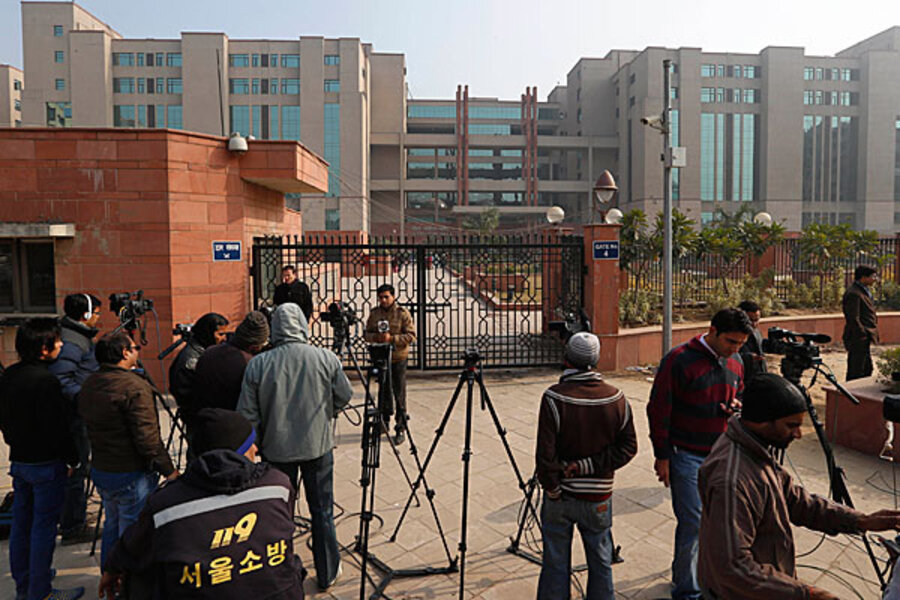Judge bans media from courtroom in India gang-rape case
Loading...
| New Delhi
An Indian magistrate ruled Monday that the media will not be allowed to attend pre-trial hearings or the trial of the five men accused of raping and killing a young student in the Indian capital, a police official said.
Magistrate Namrita Aggarwal upheld the prosecutor's request that the media be barred from attending the proceedings, according to police spokesman Rajan Bhagat. Hundreds of journalists, lawyers from other cases and curious onlookers had crowded the courtroom where the five were to appear. Outside the courthouse complex, more than a dozen TV satellite trucks jammed the streets, and dozens of reporters — from India, the U.S., Japan and elsewhere — were waiting for news.
The five defendants later appeared before the magistrate, who scheduled another pre-trial hearing on Thursday that is expected to result in the case being sent to a special "fast-track" court. Indian courts are notoriously slow, with some cases dragging on for decades. The trial is expected to begin in the coming days. Indian rape trials are normally closed to the media.
Authorities have charged the men with murder, rape and other crimes that could bring them the death penalty. The crime caused nationwide outrage, leading to massive protests.
A sixth suspect, who is 17 years old, is expected to be tried in a juvenile court, where the maximum sentence would be three years in a reform facility.
Prosecutor Rajiv Mohan said last week that a DNA test confirmed that the blood of the victim matched blood stains found on the clothes of all the accused.
On Sunday, two of the defendants offered to become "approvers," or informers against the others, according to reporters present at the hearing. The two were presumably seeking lighter sentences.
The companion of the student recounted in a television interview last week how the pair was attacked for 2 1/2 hours on a New Delhi bus before being thrown on the side of the road, where passersby ignored them and police debated jurisdiction issues before helping them. The student died at a Singapore hospital weeks after the Dec. 16 attack.
Indian law prohibits the disclosure of victims' identities in rape cases. While neither the companion nor the TV network, Zee News, identified the woman, police opened an investigation into Zee News after the interview was broadcast, saying too many details about the attack had been revealed.
The attack has led to calls for tougher rape laws and reforms of a police culture that often blames rape victims and refuses to file charges against accused attackers. The nation's top law enforcement official said the country needs to crack down on crimes against women.
Since the Dec. 16 attack, New Delhi has set up five fast-track courts to handle sexual assault cases, which often get bogged down for years. Indian courts are notorious for delays, with millions of cases pending across the country.
On Monday, the chief justice asked courts in Indian states to also set up fast-track courts to try crimes against women.
Copyright 2013 The Associated Press.







